Hello, I am a multilingual potato! |Czech(native)|English(C1)|French(C1)|Learning Spanish, Dutch, Italian and Korean...yeah, that's me holding a giant shark in Ikea...
Last active 4 hours ago
Don't wanna be here? Send us removal request.
Text
Word Of The Day - TEA
čaj (m)
(Czech)
.
thé (m)
(French)

thee (m)
(Dutch)
.
té (m)
(Spanish)
.
차
(Korean)

kī
(Hawaiian)
.
tè (m)
(Italian)

#word of the day#langblr#czech#french#dutch#spanish#korean#hawaiian#italian#czech vocabulary#french vocabulary#dutch vocabulary#spanish vocabulary#korean vocabulary#hawaiian vocabulary#italian vocabulary#vocab#vocab list#vocabulary#vocabulary list#czech langblr#french langblr#dutch langblr#spanish langblr#multilingual#language#studyblr#dutch language#languages#multilingualpotato
10 notes
·
View notes
Text
Word Of The Day - LIGHTHOUSE
maják (m)
(Czech)
.
phare (m)
(French)

vuurtoren (m)
(Dutch)
.
faro (m)
(Spanish)
.
등대
(Korean)

hale ipukukui
(Hawaiian)
.
faro (m)
(Italian)

#word of the day#langblr#czech#french#dutch#spanish#korean#hawaiian#italian#czech vocabulary#french vocabulary#dutch vocabulary#spanish vocabulary#korean vocabulary#hawaiian vocabulary#italian vocabulary#vocab#vocab list#vocabulary#vocabulary list#czech langblr#french langblr#dutch langblr#spanish langblr#multilingual#language#polyglot#studyblr#dutch language#languages
1 note
·
View note
Text
Summer in Italian

estate (f) – summer
sole (m) - the sun
spiaggia (f) – beach
sabbia (f) – sand
telo mare (m) - beach towel
ombrellone (m) - beach umbrella
mare (m) - the sea
piscina (f) - the swimming pool
gelato (m) -ice cream
crema protezione solare (f) - sunscreen
scottatura (f) - sunburn
vacanza (f) -vacation
isola (m) - island
valigia (f) – suitcase
passaporto (m) - passport
viaggiare – to travel
nuotare - to swim
costruire un castello di sabbia - to build a sandcastle

#italian#italian language#learning italian#italian langblr#italian vocabulary#italian vocab list#italian vocab#vocabulary#vocab#vocab list#langblr#languages#language learning#polyglot#multilingual#summer#summer vocabulary#multilingualpotato
5 notes
·
View notes
Text
Language learning on Duolingo at its best!


At least now, if I meet a Dutch person, I can tell them a little bit about myself...
Sometime in the future, an unsuspecting Dutch person: Hoi! Me, too confidently: Hallo, ik ben een appel en ik spreek een beetje Nederlands! Scared Dutch person: Oké… (leaves quietly)
#langblr#languages#language learning#multilingual#vocabulary#czech langblr#czech#polyglot#dutch#dutch langblr#dutch vocabulary#duolingo#dutch duolingo#nederlands#multilingualpotato
27 notes
·
View notes
Text
Autumn in Czech
Hey guys, autumn is in full swing in the Czech Republic so I thought it's time for some autumn vibes and vocabulary! Enjoy~

podzim (m)- autumn
list (m) - leaf
strom (m) - tree
mrholení (n) - drizzle
déšť (m) - rain
bláto (n) - mud
kaluž (f) ; louže (f) - puddle
deštník (m) - umbrella
kabát (m) - coat
pláštěnka (f) - raincoat
šála (f) - scarf
čaj (m) - tea
kakao (n) - hot cocoa
svíčka (f) - candle
krb (m) - fireplace
dýně (f) - pumpkin
kaštan (m) - chestnut
šípek (m) - rosehip
září (n) - September
říjen (m) - October
listopad (m) - November
počasí (n) - weather
špatné počasí (n) - bad weather
Verbs:
pršet – to rain
zmoknout - to get wet from the rain
Phrases:
venku je zima – it is cold outside
venku prší – it is raining outside
venku je ošklivě – it is bad weather outsider
Czech proverbs:
počasí že by psa nevyhnal – weather that one couldn't even get the dog outside
meaning that the weather is so bad, that even the dogs (who usually love to be outside) do not want to go outside
* f = feminine, m = masculine, n = neuter

#langblr#czech#czech language#czech vocabulary#czech vocab list#czech vocab#languages#multilingual#language learning#studyblr#polyglot#language blog#language#slavic languages#slavic langblr#slavic#vocabulary#vocab#vocab list#autumn#autumn leaves#autumn aesthetic#fall leaves#fall#fall vibes#multilingualpotato
48 notes
·
View notes
Text
Word Of The Day - ADVENTURE
dobrodružství (n)
(Czech)
.
aventure (f)
(French)

avontuur (n)
(Dutch)
.
aventura (f)
(Spanish)
.
모험
(Korean)

hana wiwo ‘ole
(Hawaiian)
.
avventura (m)
(Italian)
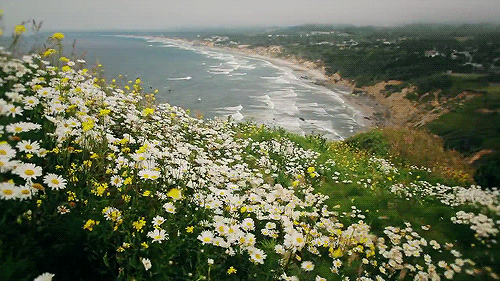
#word of the day#langblr#czech#french#dutch#spanish#korean#hawaiian#italian#czech vocabulary#french vocabulary#dutch vocabulary#spanish vocabulary#korean vocabulary#hawaiian vocabulary#italian vocabulary#vocab#vocab list#vocabulary#vocabulary list#czech langblr#french langblr#dutch langblr#spanish langblr#multilingual#language#polyglot#studyblr#dutch language#languages
8 notes
·
View notes
Text
Are Czech People… Cold?
One of the things that foreigners seem to struggle with in the Czech Republic, is that Czech people can appear to be quite cold and distant. You might even think that they look at you like they have something against you.
Do not worry, this is simply the “Czech public spaces resting bitch face” (as I like to call it). When you walk on a street or take public transportation do not expect Czech people to smile. Most won't and are not fond of small talk with absolute strangers either. However, this is nothing personal against you. Czech people are actually very warm and welcoming, once you get to interact with them on a deeper level. It’s just that we do not waste our smiles on strangers, but reserve them for people we hold dear.
So the next time a Czech person looks like they have a personal vendetta against you when you say hi to them in an elevator, just remember, they are probably thinking about how many rohlíky they should buy in Lidl.
Sincerely, a Czech person

GIF: Czech fairy tale movie Pyšná princezna (Proud princess) from 1952 aka the perfect example of facial expressions of Czech people in public
#we are actually nice I swear#the more you know#fun facts#czech#czech republic#czechia#prague#czech culture#traveling#languages#language learning#langblr#czech langblr#polyglot#multilingual#multilingualpotato
59 notes
·
View notes
Text
Word Of The Day - CAT
kočka (f)
(Czech)
.
chat (m)
(French)

kat
(Dutch)
.
gato (m)
(Spanish)
.
고양이
(Korean)

pōpoki
(Hawaiian)
.
gatto (m)
(Italian)

#word of the day#langblr#czech#french#dutch#spanish#korean#hawaiian#italian#czech vocabulary#french vocabulary#dutch vocabulary#spanish vocabulary#korean vocabulary#hawaiian vocabulary#italian vocabulary#vocab#vocab list#vocabulary#vocabulary list#czech langblr#french langblr#dutch langblr#spanish langblr#multilingual#language#polyglot#studyblr#dutch language#languages
7 notes
·
View notes
Text
Word Of The Day - DOG
pes (m)
(Czech)
.
chien (m)
(French)

hond (m)
(Dutch)
.
perro (m)
(Spanish)
.
개
(Korean)

ʻīlio
(Hawaiian)
.
cane (m)
(Italian)
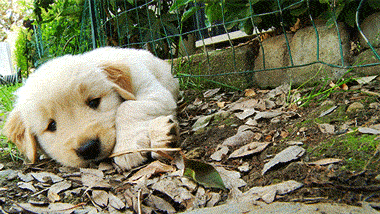
#word of the day#langblr#czech#french#dutch#spanish#korean#hawaiian#italian#czech vocabulary#french vocabulary#dutch vocabulary#spanish vocabulary#korean vocabulary#hawaiian vocabulary#italian vocabulary#vocab#vocab list#vocabulary#vocabulary list#czech langblr#french langblr#dutch langblr#spanish langblr#multilingual#language#polyglot#studyblr#dutch language#languages
16 notes
·
View notes
Text
Back to School Vocabulary in Czech
Hey guys,
seeing as the new school year starts soon I thought we could take a look at some back to school vocabulary in Czech.
PS: yes, I just decided to start posting again after three years… so, welcome back!
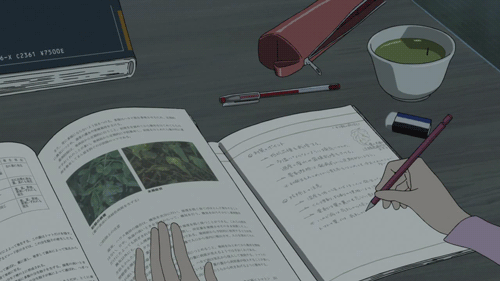
Zadání (n) - Assignment
Úkol (m) – Homework
Student (m); Studentka (f) – Student
Žák (m); Žákyně (f) – Pupil
Ředitel (m); Ředitelka (f) – Principal
Zkouška (f); Test (m) – Exam
Prezentace (f) – Presentation
Hodina (f) – Class (referring to a school subject, for example: a math class = hodina matematiky)
Třída (f) – Classroom
Třída (f) – Class (referring to a group of students who together form a class, for example: we go to the same class = chodíme do stejné třídy)
Předmět (m) – Subject
Rozvrh (m) – Timetable
Učebnice (f) – Textbook
Sešit (m) – Notebook
Známka (f) – Grade
Propiska (f) – Pen
Tužka (f) - Pencil
Penál (m) – Pencil case
Guma (f) – Eraser
Zvýrazňovač (m) – Highlighter
Knihovna (f) - Library
* f = feminine, m = masculine, n = neuter
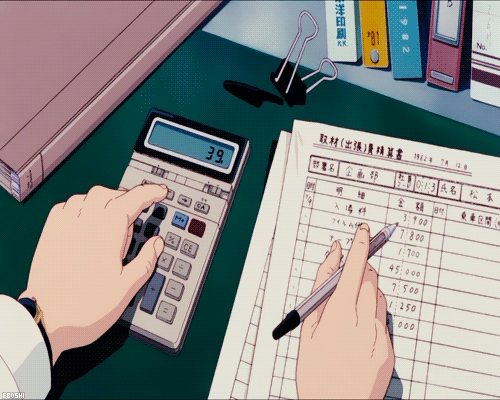
#langblr#czech#czech language#czech vocabulary#czech vocab list#czech vocab#languages#multilingual#language learning#studyblr#polyglot#school#back to school#language blog#language#slavic languages#slavic langblr#slavic#vocabulary#vocab#vocab list#multilingualpotato
34 notes
·
View notes
Text
Word Of The Day - SUN
태양
(Korean)
.
soleil (m)
(French)
.
słońce (n)
(Polish)

sol (m)
(Spanish)
.
slunce (n)
(Czech)

lā
(Hawaiian)
.
slnko (n)
(Slovak)
.
sole (m)
(Italian)

#word of the day#langblr#languages#language learning#czech#korean#polish#slovak#italian#spanish#french#hawaiian#vocab#vocabulary#sun#czech vocabulary#korean vocabulary#french vocabulary#spanish vocabulary#learning hawaiian#hawaiian vocabulary#czech langblr#spanish langblr#french langblr#vocab list#multilingual#multilingualpotato
86 notes
·
View notes
Text
Please Let Me Know
Hey guys, so I had an idea for a post and wanted to ask you, if you would be interested in it. I thought about making a post about my journey with French, as I think you might find it interesting. Learning French literally changed by life and shaped my future plans. It could be interesting to share how I got from having to google how to ask if I can take a shower, to speaking French fluently on a daily basis.
I would talk about my exchange programme in France, DELF exams, working in France, my French boyfriend (not too much though, as it is too personal for tumblr), and my possible Erasmus+ in France next year. I would also like to discuss the struggle of speaking a language fluently but still feeling insecure when it comes to having an accent and making mistakes. And how we are often the ones being the most critical of ourselves (even though I thought about making this into a separate post maybe).
So, if this is actually something that you would find interesting to read and want me to share, let me please know in the comments!
18 notes
·
View notes
Text
Czech Easter Traditions
Hello guys, as promised here are some Czech Easter traditions that I would like to share with you.
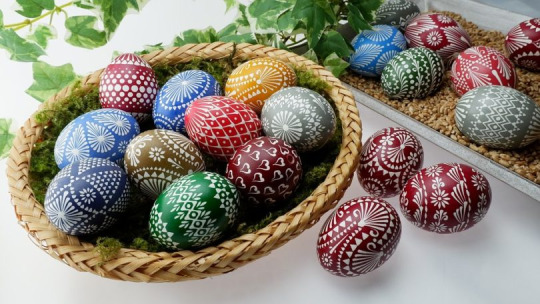
(photo source)
Barvení vajíček (egg colouring)
Traditionally, in the Czech Republic, we colour or paint eggs for Easter. Very often, we use hard-boiled eggs, or less often (because it is harder to do) we use eggshells (this type of Easter egg is called kraslice). Kraslice takes more practice and because the eggshell is empty inside, it is much more fragile and more likely to break while painting. The hard-boiled Easter eggs are eaten afterwards, while kraslice serve as decoration.
There are multiple ways of colouring Easter eggs – you can buy a colour powder (and mix it with hot water and vinegar), you can paint the egg with wax, you can use natural ingredients for colouring (such as onion peels, blueberries or beets), and much more.
Here is a video showing the different methods of emptying an egg to make kraslice.
Here is a video showing the process of colouring eggs with onion peels.
Here is a video showing the process of colouring eggs with natural ingredients. It’s in Czech, but even if you don’t understand you can at least see the final result.
Here is a video showing how to decorate Easter eggs with wax.
.
Pletení pomlázky (braiding a whip made from pussywillow twigs)

(photo source)
Another Czech tradition is pletení pomlázky, or in English: braiding a whip made from pussywillow twigs. Pomlázka is then used in a way that may be shocking to some of you.
Here is a video showing how to braid a pomlázka.
.
Koledování

(photo source)
Traditionally, on the morning of Easter Monday boys and men go around the neighbourhood with their pomlázka and a basket, stop at every house, whip the female residents and then receive some goods in return. This process is called koledování. It’s kind of like Halloween in the USA, just weirder. Boys often recite a poem while whipping the girls, and the girls then offer them the already mentioned Easter eggs, chocolates and candy in return. Girls also put a ribbon on the boy’s pomlázka. Very often a shot of alcohol is offered to the adults. The meaning behind the whipping of the girls is for them to stay young and beautiful.
Is this tradition perceived as sexist and weird nowadays? I would say that by some people (mainly the younger generation) yes. I personally quite dislike this tradition, it’s weird and I find it to be quite humiliating. What changed in the last few decades is that in most cases not all the boys visit all the houses anymore, as naturally villages and towns grew bigger and not everyone knows everyone anymore. Now, you would only visit your family members, friends or people you know well. Still, this tradition remains quite shocking to most foreigners... and I don’t blame them. It should be also mentioned that the whipping should be gentle, and if the boy is not gentle then he’s an asshole, sorry not sorry.
Here is a Spanish (you can put English subtitles on) video talking about Czech Easter and you can see how koledování looks, you can also see some traditional Czech kroj or folk costume, which is quite cool.
Another video of koledování. Watching this video, I find this tradition so fucking weird, please don’t judge us ok? Czech people are actually quite normal.
A poem that the boys would say while whipping the girl:
Hody hody doprovody,
Dejte vejce malovaný,
Nedáte-li malovaný,
Dejte aspoň bílý,
Slepička vám snese jiný
Loose translation: Give me a coloured egg, if you don’t give me a coloured one, give me at least a white one, your hen will lay another one for you.
.
Polévání vodou (ice bucket challenge but make it Easter)
There is, however, an opportunity for the girls to get their revenge. Traditionally, after noon (so 12am) or on Tuesday morning, the girls would pour buckets of cold water on the boys. The meaning behind this is also to stay young. However, this part of the tradition is not very present in the Czech Republic, and I have personally never seen anyone doing this (at least not where I come from, I am sure there are some regions where this happens).
.
Velikonoční beránek (Easter lamb)

(photo source)
A traditional sponge cake baked in a cake pan in the shape of a lamb. I think in the context of Easter it has a religious meaning, as Jesus is often called God’s lamb.
A baking video here.
.
Mazanec
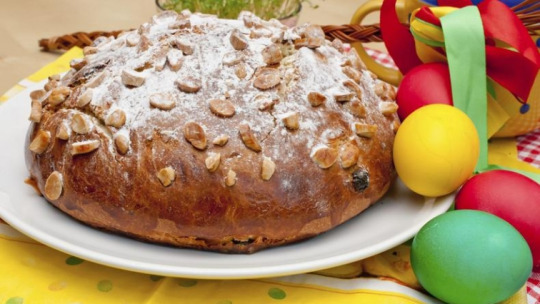
(photo source)
Sweet bread, round, often with almond flakes on top.
A baking video here.
.
No Easter egg hunt
It may come as a surprise to some of you, but the Easter egg hunt does not exist in the Czech Republic.
.
Decorations
For Easter, Czech families often decorate their homes. Typically we use colours representing spring such as yellow, green and pink. We make sure to have a lot of flowers at home such as daffodils, tulips or golden rain (laburnum anagyroides). You would also find a lot of bunny, chicken or lamb decorations, as these animals are closely tied with Easter and spring in the Czech Republic.

(photo source)
.
This may be the longest post I have ever made in my life, so I hope you like it!
PS: I would like to point out that there are more Czech Easter traditions in the Czech Republic, I mentioned just a few (those that I find to be the most present and traditional), but of course as everywhere, each family’s traditions can be different. The traditions can also differ based on the location (Moravia has slightly different traditions than West Bohemia for example). So if you are a Czech person and don’t feel happy about the traditions I chose, feel free to correct me or add more.
Veselé Velikonoce!
#easter#happy easter#velikonoce#czech#czech republic#czech traditions#czech easter#traditions#czech culture#czech language#čeština#czech langblr#learning#language learning#slavic#slavic languages#slavic langblr#langblr#multilingual#multilingualpotato
133 notes
·
View notes
Text
Easter Vocabulary in Czech
Hey guys,
Easter is here, so I thought I would share with you some Czech Easter vocabulary. Some of these words may not make sense to you (in connection to Easter) if you are not familiar with Czech Easter traditions... but you are lucky, because I plan on doing a post about Czech Easter customs tomorrow, so stay tuned!
Veselé Velikonoce to all of you <3

Velikonoce (n) - Easter
Veselé Velikonoce - Happy Easter
Zelený čtvrtek (m) - Maundy Thursday (lit. Green Thursday)
Velký pátek (m) - Good Friday (lit. Big Friday)
Velikonoční neděle (f) - Easter Sunday
Boží hod velikonoční (m) - also Easter Sunday (lit. God's Easter Feast)
Velikonoční pondělí (n) - Easter Day (lit. Easter Monday)
ukřižování (n) - crucifixion
zmrtvýchvstání (n) - resurrection
pomlázka (f) - braided whip made from pussywillow twigs
velikonoční vajíčko (n) - Easter egg
kraslice (f) - painted eggshell (a specific type of Easter egg)
velikonoční zajíček (m) - Easter bunny
beránek (m) - lamb
mazanec (m) - Easter sweet bread
mašle (f) - ribbon
čokoláda (f) - chocolate
bonbón (m) - candy
básnička (f) - poem
* f = feminine, m = masculine, n = neuter, lit. = literally

#easter#happy easter#easter vocabulary#czech#czech language#czech langblr#learning czech#czech vocabulary#vocabulary#vocab list#czech vocab list#czech vocab#languages#learning#language learning#slavic languages#slavic langblr#slavic#langblr#multilingual#multilingualpotato
76 notes
·
View notes
Text
Czech for French speakers
FUN MOOC

Hello everyone,
I would like to share with you a recommendation for all the French speakers trying to learn Czech. There is this great website called Fun MOOC, that proposes free online courses teaching various subjects. Currently they also propose a course of Czech language and culture taught in French. My boyfriend is French and trying to learn Czech and it’s his 3rd week of taking this course and he is more than happy with it. He’s doing Duolingo at the same time and he is progressing very well.
The course is well made, fun, sometimes a little bit silly (thanks to the marionettes) but also very effective. It is also informative about the Czech culture, which is always a must when learning a new language. So, I could not recommend it more.
Here is the link to the site: https://www.fun-mooc.fr/courses/course-v1:Inalco+52006+session05/about , I checked and you can sign up until April 19.
Hope this could help someone <3
Bye ~
#czech#czech language#czech langblr#learning czech#czech course#czech culture#french#french language#french langblr#studying#languages#studying languages#language learning#langblr#recommendation#courses#learning courses#multilingual#multilingualpotato
31 notes
·
View notes
Text
Pepeke ‘Aike He
The indefinite article ‘he’ in the Hawaiian language
Hey guys,
For anyone interested in learning Hawaiian (and looking for some online resources and explanation videos) I would like to introduce you to Ke Aloha No Hawaiʻi.
Yesterday I was searching for an explanation of how does ‘he’ act in a sentence and I came across this great video: https://www.youtube.com/watch?v=hIYoJvpqiC8&ab_channel=KeAlohaNoHawai%CA%BBi&fbclid=IwAR1k58dfarthhaK2fXpFi0AY-0vxMh8gB3aX88Gyxt_OTIyKkx6XqbDesxI
If you are confused about what exactly ‘he’ is, how it is used and placed in a sentence, this video will save you!
Everything is explained - the function of ‘he’, the correct form of using it in a sentence, the plural indefinite article, the placement of an adjective and even the negation of the sentence.
It helped me a lot to to be able to understand the exact use of ‘he’, so if you are interested in Hawaiian, surely check it out!

#hawaiian#hawaiian langblr#Hawaiian language#learning hawaiian#hawaii#grammar#grammar explanation#hawaiian grammar#langblr#languages#language learning#multilingualpotato
20 notes
·
View notes
Text
Czech Christmas Carols
Hey there,
Christmas is near and it’s time to get into the right Christmas spirit, so let me share with you some classic Czech Christmas carols.
But first some vocabulary:
Vánoce - Christmas
Koledy - Carols
Vánoční koledy - Christmas carols
Koledníci - Carolers
Veselé Vánoce - Merry Christmas
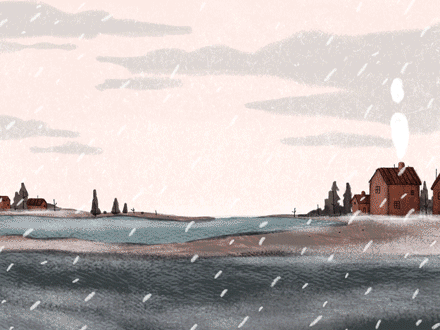
Půjdem spolu do Betléma (Let’s go to Bethlehem together)
https://www.youtube.com/watch?v=moFy1FvYHf4&ab_channel=SerialUlice
Pásli ovce Valaši
https://www.youtube.com/watch?v=qpO64qgfu0Q&ab_channel=SerialUlice
Vánoce, Vánoce přicházejí (Christmas, Christmas is coming)
https://www.youtube.com/watch?v=VSrbmTYC3Wk&ab_channel=V%C3%A1clav%C5%98eh%C3%A1k
Nesem Vám noviny (We are bringing you news)
https://www.youtube.com/watch?v=pPxJSLId7ik&ab_channel=SerialUlice
Narodil se Kristus Pán (Christ is born)
https://www.youtube.com/watch?v=HGQR2VRvW_8&ab_channel=SerialUlice
Rolničky (Jingle bells)
https://www.youtube.com/watch?v=Ps4p-PuD8zg&ab_channel=LuckaApalovi%C4%8Dov%C3%A1
Veselé vánoční hody (Merry Christmas feasts)
https://www.youtube.com/watch?v=zQS9fXIqEB4&ab_channel=SerialUlice
Tichá noc (Silent night)
https://www.youtube.com/watch?v=cAtiVJsyqTw&ab_channel=frenkycz
Jak jsi krásné neviňátko (How beautiful you are innocent child)
https://www.youtube.com/watch?v=6ggCJWmkmeA&ab_channel=JaroslavP%C5%A1eni%C4%8Dn%C3%BD
Štědrej večer nastal (Christmas eve has come)
https://www.youtube.com/watch?v=9bwHdBKbhb0&ab_channel=SerialUlice

#czech#czech language#czech langblr#christmas#carols#christmas carol#christmas vocabulary#vocab#vocabulary#czech vocabulary#czech vocab#songs#czech songs#languages#language learning#langblr#polyglot#multilingualpotato
39 notes
·
View notes